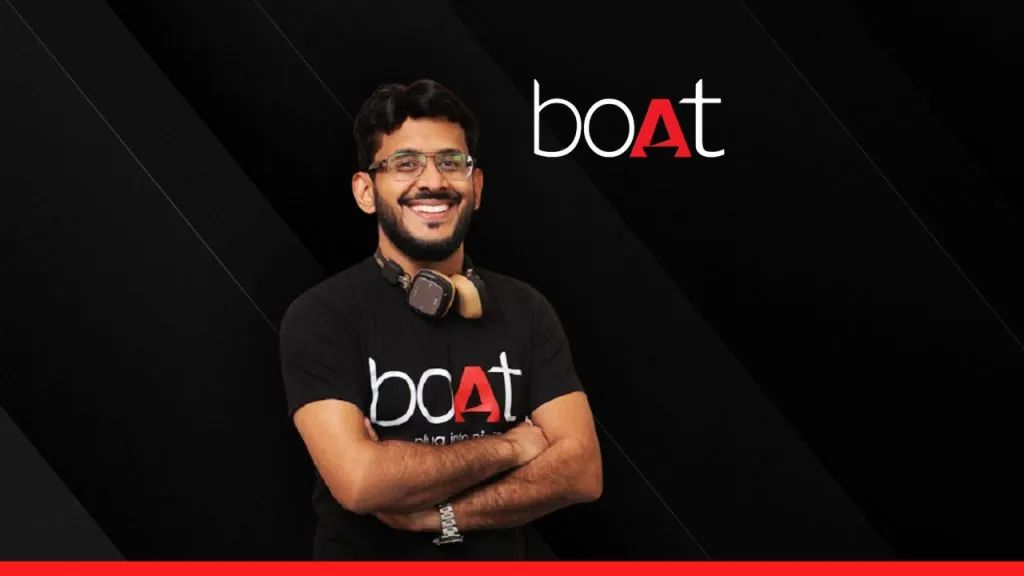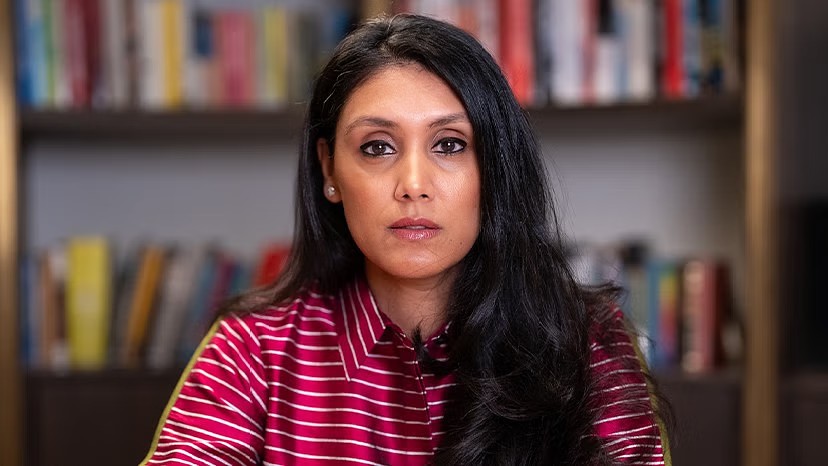Deepinder Goyal Success Story: From Humble Beginnings to India's Newest Billionaire
The food delivery segment in India has seen phenomenal growth, driven by factors like late-night cravings, the convenience of home delivery, and the increasing reliance on digital services. Despite the vast market potential, only a few brands dominate this industry, with Zomato being one of the leading players.
Founded by Deepinder Goyal and Pankaj Chaddah, Zomato has not only transformed the food delivery landscape in India but also made significant strides on the global stage.
Zomato began its journey in 2008 as Foodiebay. The idea was conceived by Deepinder Goyal and Pankaj Chaddah, both alumni of IIT Delhi.
The initial inspiration came from the inconvenience they faced in accessing restaurant menus while working at Bain & Company. In 2010, Foodiebay was rebranded as Zomato, signaling the company's broader ambitions and its evolution from a simple menu aggregator to a comprehensive restaurant discovery and food delivery platform.
Zomato's IPO in July 2021 was a landmark event. The shares were listed on the Bombay Stock Exchange (BSE) and National Stock Exchange (NSE) with an IPO price range of ?72 to ?76 per share. As of July 2024, Zomato's market capitalization stands at $23.19 billion, making it one of the most valuable companies in India.
Deepinder Goyal Early Beginning
Deepinder Goyal was born on January 26, 1983, in Muktsar, Punjab, into a modest, middle-class family—his upbringing in a humble environment instilled in him the values of hard work and perseverance. Growing up in a supportive family, Deepinder was encouraged to pursue his education and follow his ambitions. His parents valued education highly and emphasized its importance.
After graduating from IIT Delhi, Deepinder joined Bain & Company, a global management consulting firm, as a Senior Associate Consultant in January 2006. His role involved analyzing business problems and providing strategic solutions, which honed his analytical and problem-solving skills.
The Birth of FoodieBay
Inspiration and Idea: While working at Bain & Company, Deepinder noticed a recurring problem. Employees, including himself, spent a considerable amount of time queuing for food in the cafeteria and finding restaurant menus. This sparked the idea of creating a digital platform to streamline the process.
Collaboration with Pankaj Chaddah: Deepinder shared his idea with his colleague, Pankaj Chaddah, who was also an IIT Delhi alumnus. Together, they decided to create a website that would host restaurant menus and reviews, making it easier for people to decide where to eat.
Launch of FoodieBay
Initial Development: The duo developed FoodieBay, an intranet website initially used by Bain employees. The site featured scanned copies of restaurant menus, which quickly gained popularity within the company.
Public Launch: Encouraged by the positive response, Deepinder and Pankaj launched FoodieBay to the public in 2008. The platform provided comprehensive information about restaurants, including menus, reviews, and ratings, making it easier for users to discover dining options.
Transition to Zomato
Rebranding: In 2010, to reflect their broader ambitions and expansion plans, FoodieBay was rebranded as Zomato. The new name was catchy, memorable, and better suited for their growing user base.
Expansion: Zomato rapidly expanded its services to major Indian cities, providing users with detailed information about restaurants and offering online food delivery services. The platform's user-friendly interface and comprehensive database quickly made it a favorite among food enthusiasts.
Deepinder Goyal and the Growth of Zomato
Zomato expanded its services to include online food delivery, restaurant reservations, and loyalty programs. By adding features like discounts and offers, Zomato attracted a larger user base and increased customer retention.
City Coverage: By the end of 2010, Zomato had expanded to other major Indian cities including Pune, Bangalore, and Chennai. Its presence in key metropolitan areas helped it capture a significant market share in the food delivery and restaurant discovery segments.
Technological Advancements
Zomato launched mobile applications for iOS, Android, and Windows platforms, making them more accessible to users on the go. The app’s user-friendly interface and seamless functionality contributed to its growing popularity.
Innovative Features: The company continually introduced new features, such as real-time tracking of food delivery, personalized recommendations, and Zomato Gold (later rebranded as Zomato Pro), which offered exclusive discounts and deals to subscribers.
Funding and Financial Milestones
Initial Funding: Zomato's first major funding came in August 2011 when Info Edge invested $1 million in the company. This investment was crucial for scaling operations and expanding services.
Series of Fundings: Zomato continued to attract significant investments from various venture capitalists and investors. By 2018, Zomato had achieved unicorn status, valued at over $1 billion.
IPO: In July 2021, Zomato went public, marking a significant milestone in its journey. The IPO was highly successful, with shares listed on the Bombay Stock Exchange (BSE) and the National Stock Exchange (NSE). The IPO price range was ?72 to ?76 per share, and as of July 2024, Zomato’s market capitalization stands at $23.19 billion.
Annual Revenue of Zomato: A Comprehensive Overview
Zomato's journey from a small startup to a global food tech giant has been marked by significant revenue growth over the years. Here's a detailed look at Zomato's annual revenue milestones:
Early Years and Initial Growth
FY 2011-2012: Zomato Media Pvt. Ltd. reported revenues worth INR 2.04 crores.
FY 2012-2013: Revenues increased to INR 11.38 crores, reflecting the company's expanding footprint in major Indian cities.
FY 2013-2014: Revenues continued to rise, reaching INR 30.06 crores as Zomato gained more popularity and increased its restaurant listings and user base.
Rapid Expansion and Scaling
FY 2014-2015: Zomato's revenue surged to INR 96.7 crores, driven by aggressive expansion into new cities and countries, as well as the introduction of innovative features on its platform.
FY 2015-2016: Zomato maintained its growth trajectory, with revenues climbing to approximately INR 184.96 crores. The company continued to invest in technology and expand its global presence through strategic acquisitions.
Unicorn Status and IPO
FY 2016-2017: Revenues continued to grow, reaching around INR 332 crores. This period marked significant advancements in Zomato’s technological capabilities and service offerings.
FY 2017-2018: Zomato's revenue crossed the INR 466 crores mark as the company solidified its position as a leading player in the food delivery and restaurant discovery space.
FY 2018-2019: With continued expansion and increased user engagement, Zomato's revenue further increased to approximately INR 1,397 crores.
FY 2019-2020: Zomato achieved revenues of around INR 2,486 crores, driven by the rapid growth of its food delivery services and the introduction of Zomato Pro.
Recent Financial Performance
FY 2020-2021: Despite the challenges posed by the COVID-19 pandemic, Zomato's revenue grew to INR 2,604 crores. The pandemic accelerated the adoption of food delivery services, contributing to revenue growth.
FY 2021-2022: Zomato’s revenue increased to INR 4,192 crores, supported by the company’s successful IPO in July 2021 and the acquisition of Blinkit (formerly Grofers) for $560 million in an all-stock deal.
FY 2022-2023: Zomato reported impressive revenue growth, reaching INR 7,079 crores. This marked a growth rate of 68.9%, reflecting the company's expansion into new markets and diversification of its service offerings.
Market Valuation
2024: As of July 2024, Zomato's market capitalization stands at $23.19 billion, making it one of the most valuable companies in India and the 832nd most valuable company in the world based on market value.
Deepinder Goyal's Net Worth
Deepinder Goyal has a Net Worth of 1.7 billion USD as of 2024. As of June 30, 2024, Deepinder Goyal, the chief executive of Zomato and a well-known figure from Shark Tank India, owned 36,94,71,500 equity shares in the company. This represents a 4.19% stake in Zomato. Zomato's strong performance in the stock market has contributed significantly to Goyal's net worth. As the company's market capitalization reached $23.19 billion in July 2024, the value of Goyal's stake mirrored this upward trend.
Challenges and Overcoming Hurdles
Family Resistance: Deepinder faced initial resistance from his family, who were concerned about him leaving a stable job to pursue an uncertain entrepreneurial venture. Despite their apprehensions, Deepinder remained determined and focused on his goal.
Financial Struggles: In the early stages, Deepinder and his team struggled to secure funding and faced financial constraints. They operated on a tight budget and encountered several obstacles in scaling the business.
Breakthrough Funding: In August 2011, Info Edge invested $1 million in FoodieBay. This funding was a turning point, enabling Deepinder and Pankaj to quit their jobs at Bain & Company and fully dedicate themselves to growing Zomato.
Success and Legacy
Market Dominance: Over the years, Zomato expanded its services, acquired several startups, and established a strong presence both in India and internationally. The company's innovative approach and commitment to customer satisfaction helped it become one of the leading players in the food tech industry.
Public Listing: Zomato's IPO in July 2021 marked a significant milestone, highlighting the company's remarkable growth and solidifying Deepinder Goyal's status as a visionary entrepreneur.
Inspiration: Deepinder's journey from a small-town boy to a successful entrepreneur serves as an inspiration to aspiring business leaders. His story emphasizes the importance of resilience, innovation, and strategic thinking in achieving success.
- 11 August 2025






